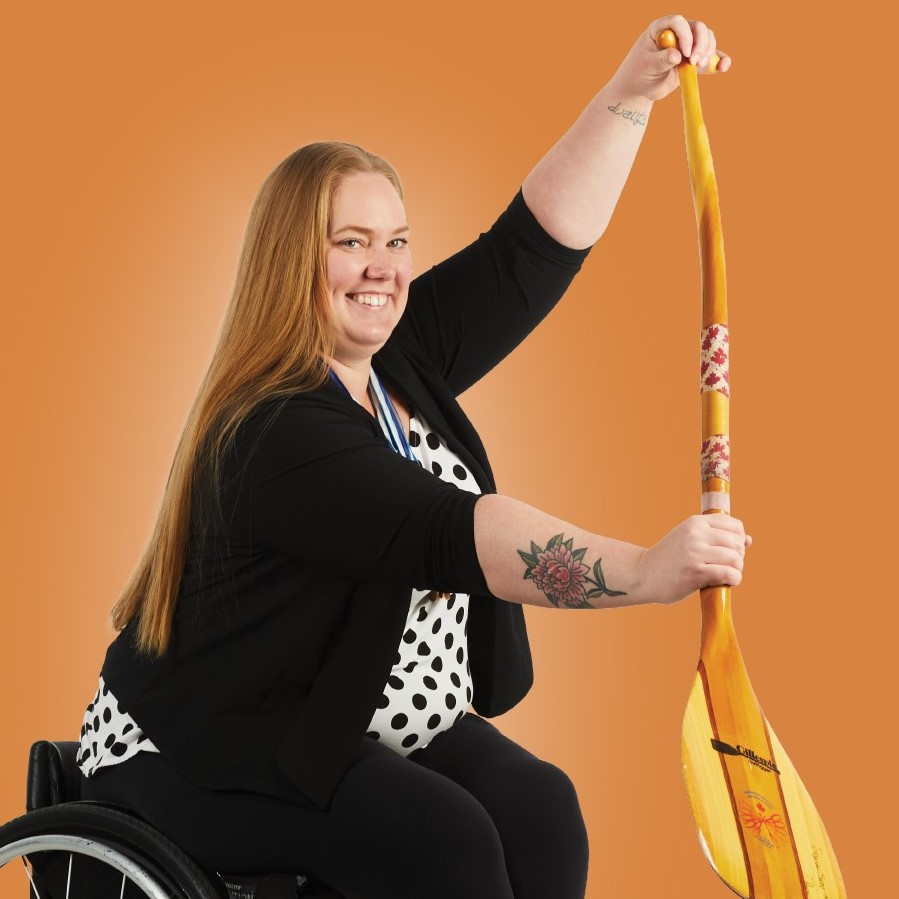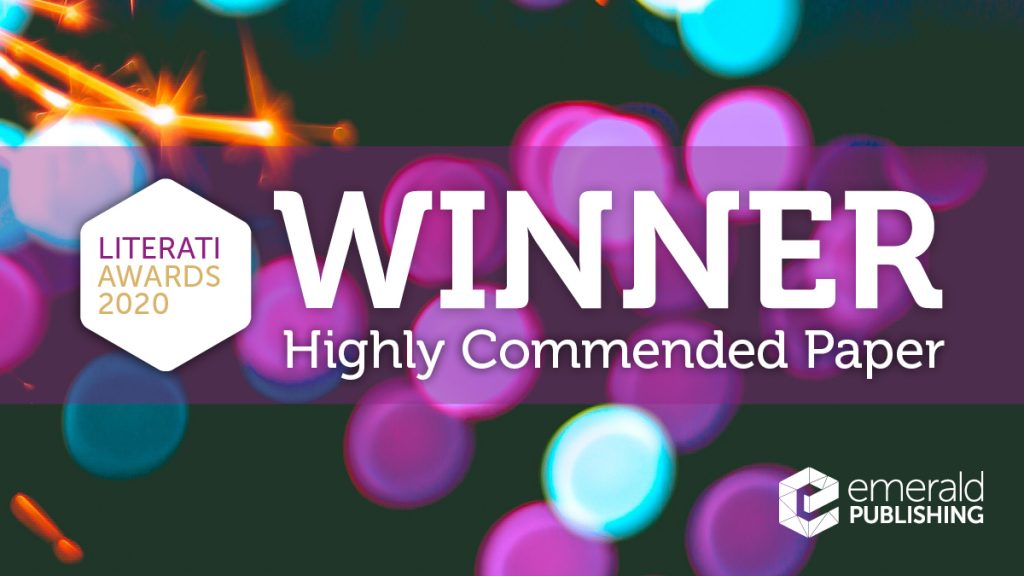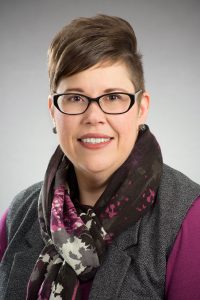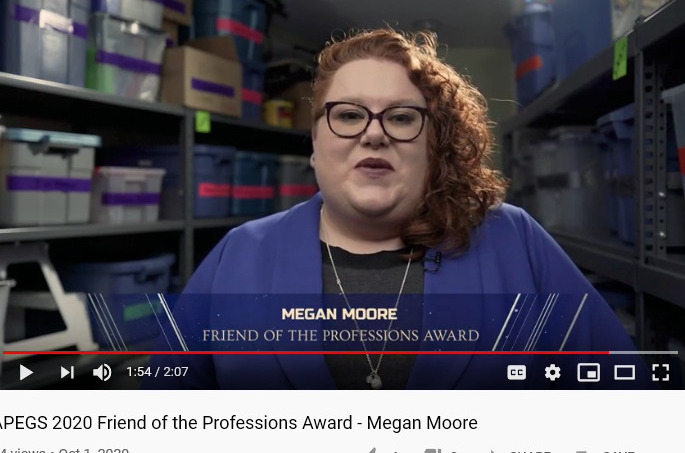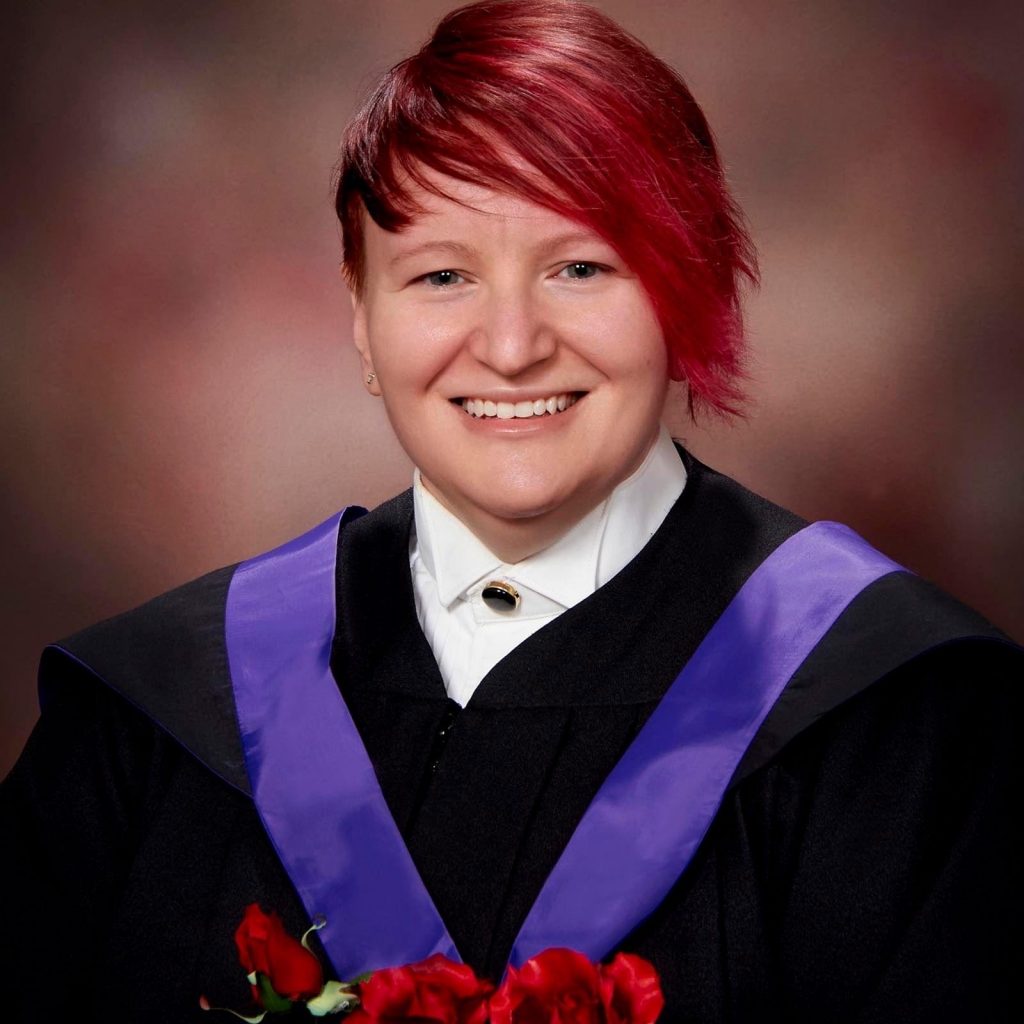Jessica Irvine (BEd ’08, MEd ’19) is recipient of the CSSE-SCEE Cynthia Chambers Award for her master’s thesis, “Writing and Teaching Curriculum With Relationships in Our Place: A Critical Meta-Analysis of Saskatchewan Core French Curricula’s Cultural Indicators,” which she successfully defended on November 29, 2019. Irvine was supervised by Dr. Heather Phipps. Committee members were
Dr. Valerie Mulholland and Dr. Anna-Leah King. The External Examiner was Dr. Michale Akinpelu, La Cité Universitaire Francophone. The following is an interview with Irvine.
What personal and/or professional circumstances prompted you to take your master’s degree?
I have been a Core French educator with Regina Public Schools since 2008. Primarily, and most recently, I teach elementary, Grades 1-8. When the new elementary Core French curriculum was released in 2010, I felt disconnected to it. I also felt students were disconnected to Core French overall and most complained about having to take it. I couldn’t figure out why that was. I began to question if it was me as a teacher? Or me as a person? I came to a point where I had to find the answers and how to change this negative response to Core French or I’d lose the passion to teach Core French that I’ve had since I was a child.
I also felt overwhelmed by the Core French curriculum, which has outcomes and indicators for student tasks based on the recommendation of 120-200 minutes of French education per week. Students only receive 60-90 minutes typically in a week due to timetable constraints.
Further, the new curriculum introduced several Indigenous cultural knowledge strands. Because I completed my Bachelor of Education in 2008, I did not have any teacher training or education on Indigenous content in the curriculum. To be honest, I was scared to teach it as I wasn’t sure I could or if I’d teach it wrong. For the first few years of the new curriculum, I avoided Indigenous content.
However, in the 2015-2016 school year, when I was teaching a unit about the fur trade, about Carnaval de Québec, to Grades 6 – 8, a student spoke up and said that he wished we learned more about the Indigenous people and their languages in school. He expressed that my lesson on the fur trade is another example that French came after Indigenous languages, so why are they rarely taught? The student had a Cree and Saulteaux background and what he really was asking “Why aren’t we learning more about what’s relevant to me, too?”
His question promoted a class discussion and almost every student had the same final thought when I collected sticky notes—because the Indigenous were here before the French and there is so much intertwined history with both cultures—why is it we are only seeing the one side in schools? Why is it we are only offered Core French at a majority of schools?
This led me to applying for my Master’s of Education, to a course-route program initially. But after the first few classes, I realized that what brought me back to school and learning was my students’ questions which couldn’t be answered unless I confronted the issue full on by writing a thesis on it.
Why did you choose the U of R to do your Master’s degree?
Mainly it was about being able to teach and learn at the same time. I didn’t want to take a leave to go to another university as I felt that I would learn more by teaching at the same time of my learning—really my unlearning, too.
I also wanted to take classes at the U of R because I knew many professors who would be able to help me on this journey. The University’s dedication to reconciliation was important to me.
What was your rationale for framing your research with Senator Sinclair’s (2016) four questions: Where do I come from; where am I going; why am I here; and who am I?
I was fortunate to hear Senator Sinclair speak at the Woodrow Lecture. When I heard him ask these questions, my mind immediately returned to my classroom with my students who were really asking me those exact questions. And I realized, that as their teacher, I didn’t even have the answers to those questions. I had to be able to answer them first if I was ever going to be an educator that helped guide students to their own answers. By framing my research with those questions, I was forcing myself to answer the questions from my students.
What was your initial research question? Did your question change as you researched?
Without recognizing it, my initial research question began in my first course with Dr. Lace Brogden. One of the articles I was assigned to present on was by Dr. Cynthia Chambers. Her theories on land-based learning and culturally appropriate curricula began to inspire me to want to learn more about the land I lived on. My second course, Indigenous Methodologies taught by Dr. JoLee Sasakamoose, was the first of many unlearnings. I encountered many moments of discomfort as I learned new perspectives that were never a part of my previous education. I formed several supportive relationships in this course that I still am blessed to have in my life now. I also took a directed reading course with Dr. Heather Phipps focused on Life Writing and Literary Métissage as an Ethos for Our Times by Dr. Cynthia Chambers, Dr. Erika Hasebe-Ludt, and the late Dr. Carl Leggo. The course and text guided me to my research question. I knew I wanted to find out if or how French and Indigenous languages and culture could both be taught through a Core French program without forgetting my role as a French educator, but also not forgetting that I’m an educator on Treaty 4 lands.
My final research questions that changed and focused over time in my thesis were: Does Saskatchewan’s Core French curricula advocate for Core French programs to integrate Indigenous knowledges, culture, and languages that meets the Truth and Reconciliation Commission’s Calls to Action in Education of culturally appropriate curricula? How can the Saskatchewan Core French curricula make space for both French and Indigenous culture and languages, along with multiple other cultures, in our diverse province?
What were your findings?
Levels 1-7 Core French curricula is not culturally appropriate and has many stereotypes and content that was not integrated with feedback from Indigenous peoples. I think what surprised me the most was that my focus was to determine if the Indigenous content in the cultural indicators were appropriate, but what was also revealed in the focus groups was that the French culture, the culture the curriculum was created for, also had many stereotypes and misconceptions of French culture.
Participants strongly recommended that the curriculum should be rewritten but this time, with educators of Core French, members of the French community, and the Indigenous community invited to the process.
For part of the focus group discussion, it was debated whether or not Indigenous culture even belonged in the Core French curriculum. In the end, all participants, both Indigenous and non-Indigenous strongly agreed that it did as a part of where we live but that the following four foci should be implemented into the curriculum making AND the curriculum teaching process:
- Building relationships. If you are not Indigenous, you need to talk to someone who is an Elder or knowledge keeper. You need to ask permission before teaching Indigenous content so you are guided how to do it, and sometimes you may be told you cannot teach it as you are not qualifeid to share that knowledge. Some knowledges have be taught from the Elders and knowledge keepers.
Teach from your place. The Core French curriculum tried to throw in content from across Canada and the world. Focus on your place whether that be Regina, Treaty 4 or perhaps in Saskatoon on Treaty 6. Teach what is relevant to the students in the environment they live and learn from.
- Spiritual content—be very careful of this. It may not be appropriate to teach this from within the classroom as it should be experienced in a real setting.
- We have to find the third space—in Core French, that space is to teach French culture and language but it must allow for other cultures of my place to not be overshadowed. But as a Core French educator, I also can’t forget that my role is to teach French, too. This space needs to allow for learning from others and asking for help when needed, to not assume I am teaching the right thing when it comes to Indigenous cultural indicators, but also to not skip teaching them as I’m afraid to do so.
Describe an “aha” moment for you as you researched your topic?
While the focus groups and myself all had various backgrounds—we really had one common goal—our children. It didn’t matter if anyone disagreed or didn’t see one aspect the same as someone else did. The participants listened to each other, created a safe place for discussion, often changed their perspectives upon hearing another, brought themselves to many uncomfortable conversations, and learned from each other—and came to a common understanding. It wasn’t easy but seeing my participants in this process really showed me that curriculum could be done in a similar way. And that there are people willing to give their time for it, yet often the invitation to the process is not extended. I realized for myself that while I cannot change the curriculum, I can change how I approach it and how I teach it. As one participant said—the curriculum is mainly just a guide.
How has your research changed how you approach teaching and learning?
I see the curriculum completely different. Before I saw it as almost the “bible” that had all the right answers. This has changed. I refer to it for ideas on what to teach but then I seek out the sources I need to teach that content and ask them “What should I or shouldn’t I teach with this?” I feel my connection to where I’m from has deepened, and I put relationships first in my classroom and with my colleagues. Students are excited and eager to learn when I come to their class and it isn’t because it’s French. It’s because I’ve taken the time to understand why I’m teaching Core French and I try to make the program relevant to my students, too.
My passion for this knowledge led me to wanting to build more of a community for Core French educators as well. Often we are the only one in a school building with multiple classrooms. I became lead facilitator for the Community of Practice for Core French educators in Regina Public Schools four years ago, and in the past couple years, I’ve helped bring together a province-wide group of Core French educators where there are optional virtual meetings and Professional Development. It isn’t an official role or even a paid one, but it is a necessary role that my research led me to. The Ministry of Education isn’t going to spend the money to update the curriculum in the near future, but by building relationships with those who teach Core French in my place, whether that be just Regina or the whole province, we can work together to change how we teach the curriculum using the knowledge I’ve gained from the research process and from what the participants have helped me to unlearn and learn.
This is just the beginning as well—I just recently finished my research and I have so much more to learn.
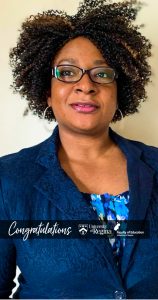
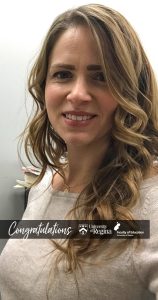
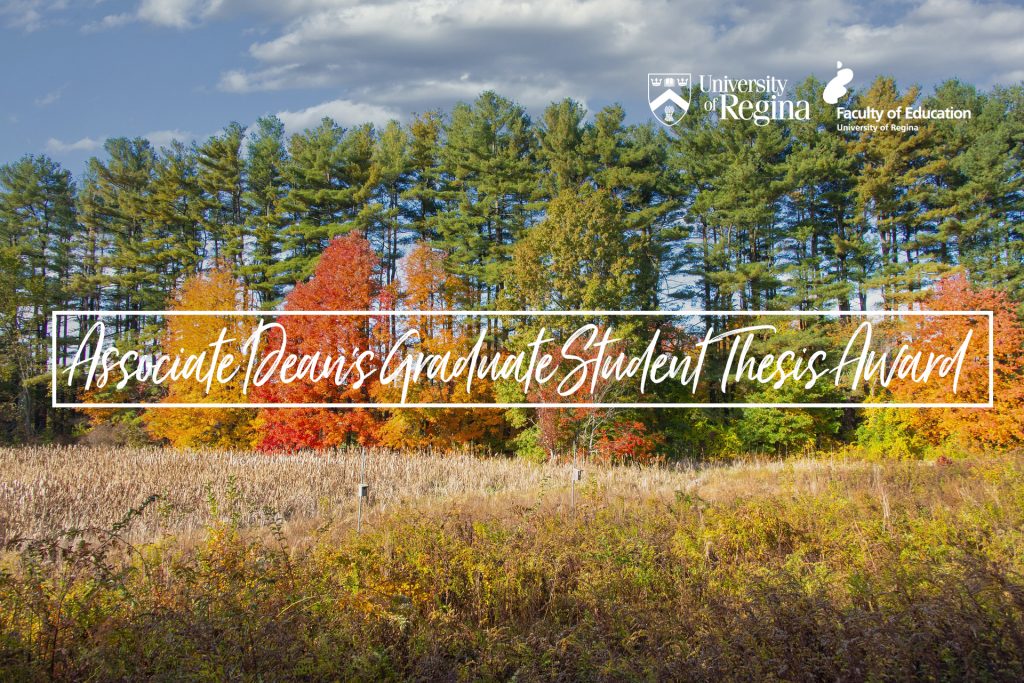
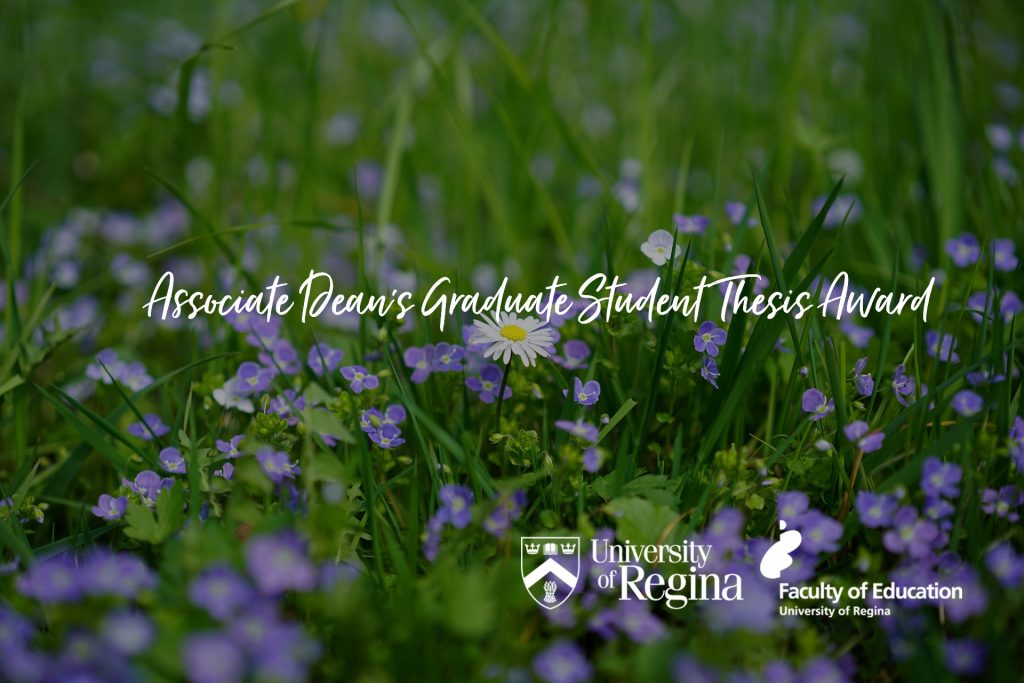
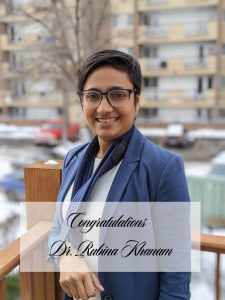
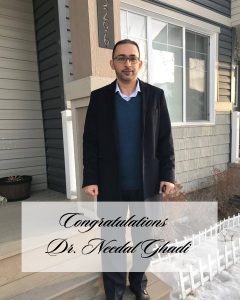 Congratulations to the 2021 inaugural recipients of the #UREdu Associate Dean’s Graduate Student Thesis Award: Dr. Needal Ghadi (the Faculty of Education’s nominee for the Governor General’s Academic Gold Medal) and Dr. Rubina Khanam (BIPOC).
Congratulations to the 2021 inaugural recipients of the #UREdu Associate Dean’s Graduate Student Thesis Award: Dr. Needal Ghadi (the Faculty of Education’s nominee for the Governor General’s Academic Gold Medal) and Dr. Rubina Khanam (BIPOC).
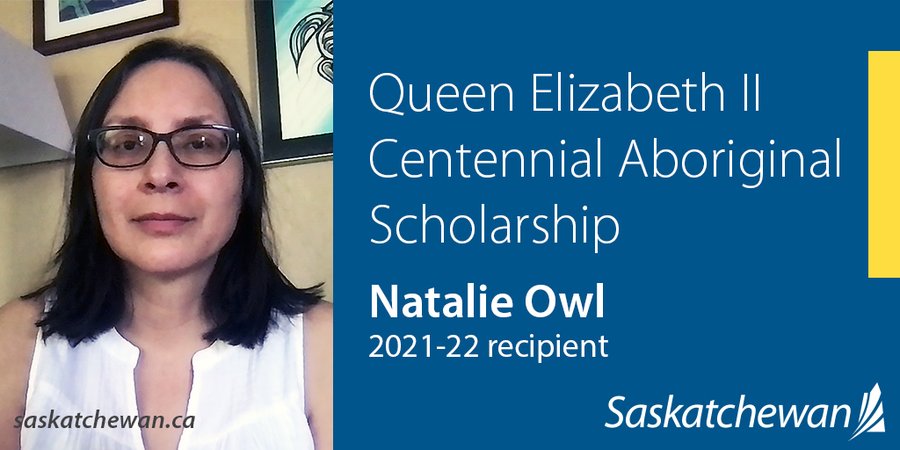
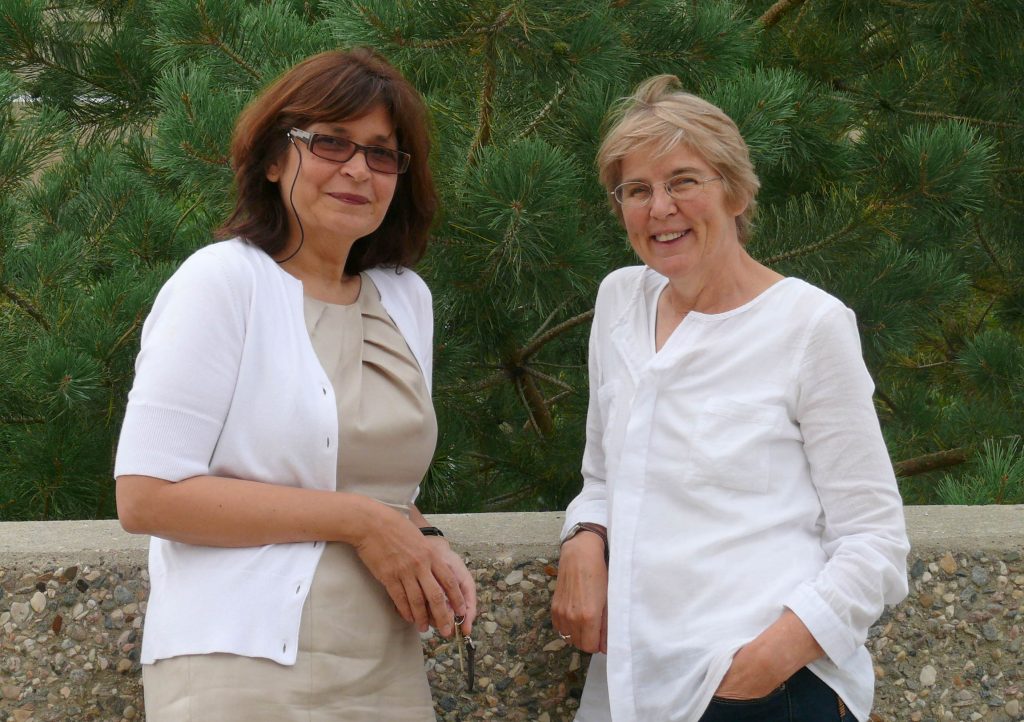
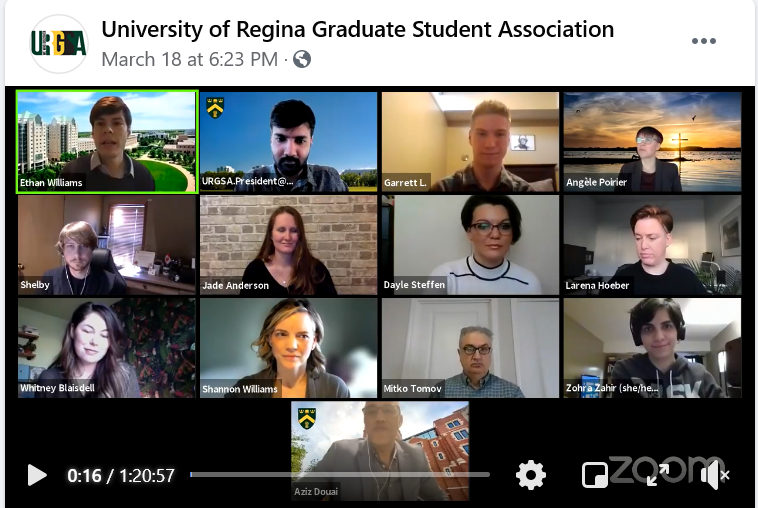
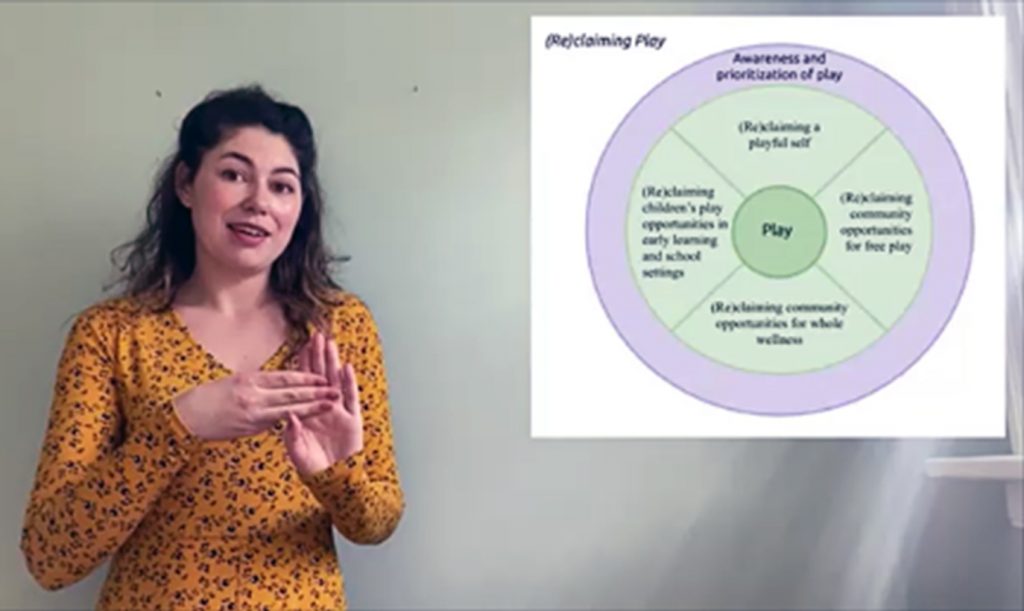 Congratulations to MEd student Whitney Blaisdell on winning the University of Regina 3MT® competition. Along with the recognition, Blaisdell takes home $1500 and she will represent the U of R in the Western Regional 3MT® competition.
Congratulations to MEd student Whitney Blaisdell on winning the University of Regina 3MT® competition. Along with the recognition, Blaisdell takes home $1500 and she will represent the U of R in the Western Regional 3MT® competition.
